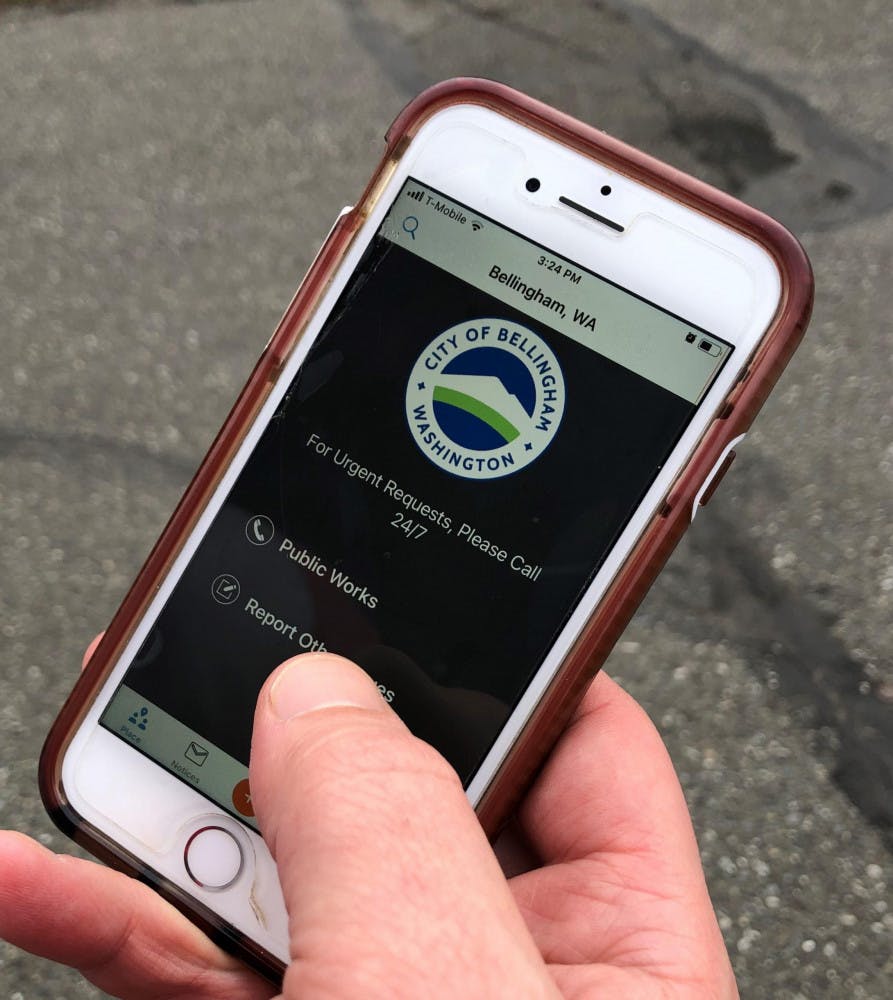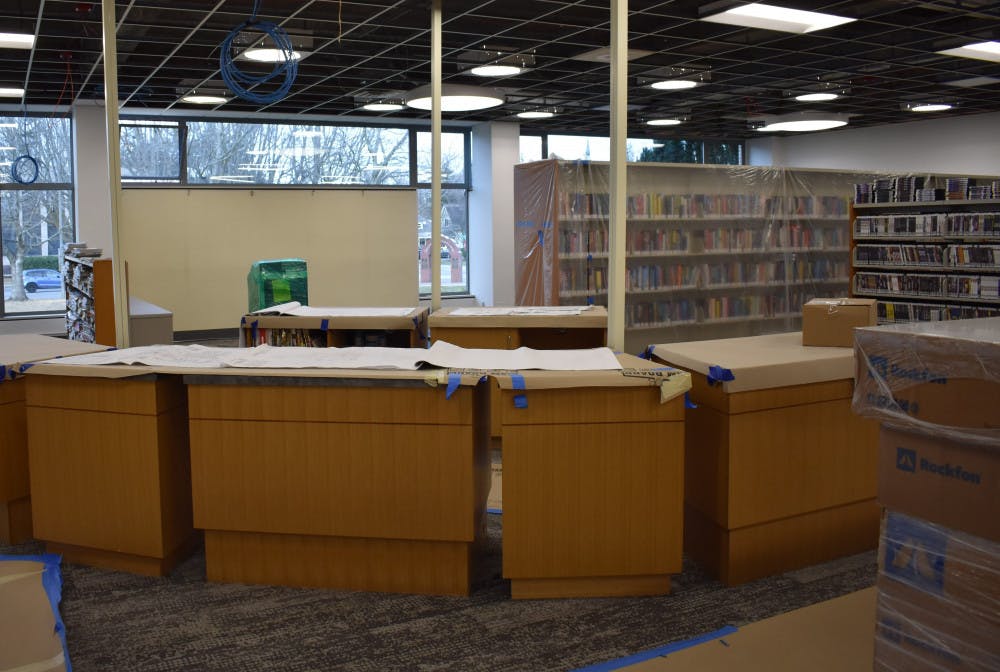Bellingham modernizes how the public can track and report city infrastructure.

By Adela Cruz
The City of Bellingham announced a new, modernized option for residents to report and track infrastructure issues like potholes, illegal dumping or minor flooding through SeeClickFix, a browser and mobile app that allows users to upload photos and report non-emergency city work issues.
“Before implementing SeeClickFix, we primarily received requests for infrastructure repair — potholes, street lights, drainage issues — over the phone or via email,” said Caleb Barber, the asset manager for public works operations. “Historically, we’ve received upwards of 2,000 individual requests for service annually.”
Since the launch of SeeClickFix on Feb. 23, Bellingham residents have been actively reporting potholes, littering and damaged signs through the app, according to the City of Bellingham, Washington website.
“Currently, only City of Bellingham Public Works is responding to issues reported via SeeClickFix,” Barber said. “This includes our Street, Stormwater, Water, Sewer and Traffic divisions.”
Other counties in Washington also use SeeClickFix, including King and Thurston County. Bellingham is the first city in Whatcom County to adopt the app.
“We are adapting to modern methods of communication, and we hope to hear from members of our community who would be unlikely to pick up a phone and call,” Barber said. “The information we receive via SeeClickFix is also geospatial and can include photos and more accurate information than we are able to glean otherwise, so we can respond more appropriately.”
Downtown Public Library Renovations

The Central Library’s last renovation was in 1985 — almost 35 years ago — it’s the largest Bellingham Public Library branch and construction is scheduled to finish in spring 2021.
“In 2008, the library board, in conjunction with library administration, released a commissioned plan for a new library building,” said Rick Osen, chair of the Bellingham Public Library Board of Trustees. “The price tag, combined with The Great Recession, tabled the project.”
The commission of a new library building did not gain traction again. Instead, the board revised a plan to improve and possibly expand the Central Library in phases due to money budgeting, the first phase being Central Library’s main floor.
Central Library main floor renovation began July 12, 2020 after former Mayor Kelli Linville and the city council supported the capital investment in the 2019-20 budget. The project is expected to be finalized in spring 2021.
Interior renovations include new carpet, paint, ceiling tiles and LED lighting, rebuilding the passenger elevator and adding public restrooms. The project involves nearly 20,000 square feet of the building.
The library board initiated a space planning project in 2018 for the main floor of the Central Library. RMC architects were hired to conduct a study, primarily to analyze the space constraints and to propose a cost-effective method to address those constraints.
“Today, people bring their digital devices [to the library] and need places to plug them in,” said Rebecca Judd, Bellingham Public Library director. “We have greatly expanded the electrical outlets and capacity on the north side of the building.”
The Central Library renovations include modernizing the interior layout by creating an open space concept, enhancing the seating area with new furniture and replacing window glazing for a bright space that looks over Lee Memorial Park.
“We hope this is just the first step towards further improvements and possible expansion of Bellingham’s Central Library. The Library’s Board wishes to thank former Mayor Kelli Linville, the Bellingham City Council and Public Works for the capital funding,” Osen said.
Meridian Street water quality improvement project
The Meridian Street water project is intended to address the issue of runoff from high-volume roadways between Bakerview Road, Stuart Road and on Kellogg Road.
Stormwater needs to be managed to ensure the health and safety of wildlife and citizens. Stormwater flows over roads and into drains which empty directly into nearby lakes and Bellingham Bay. Without any treatment, the water becomes polluted, according to the City of Bellingham on the Natural Resources and Environment.
“We installed 17 BioPod stormwater filters,” said Larry Scholten, Meridian Street water quality project engineer. “The stormwater that leaves the roadway filters through proprietary media within the BioPod. This and other water quality facilities have been tested by the Department of Ecology. These facilities treat the water to an enhanced level.”
Enhanced water levels meet the basic treatment goal with 30% removal of dissolved copper and 60% removal of dissolved zinc for influent.
"The project was determined by the city’s Natural Resources department to be a high-priority area of the city for stormwater treatment as it had a large number of cars, and runoff was not being treated and drained directly to waterways,” Scholten said.
The City of Bellingham works to guarantee that all waterways comply with the Clean Water Act. The water quality assessment is to ensure that states establish processes to clean polluted water.
Adela Cruz is a former reporter for The Front.





